Addiction researchers know that alcohol produces some of its effects inside the brain by activating sites called opioid receptors, found on the surfaces of nerve cells. However, they don’t completely understand the brain’s opioid receptor system, and therefore don’t entirely know how activation or deactivation of this system can help or harm a person who drinks excessive amounts of alcohol.
In a study published in May 2014 in the journal Biological Psychiatry, a team of U.S. and Danish researchers explored the alcoholism-related role of one specific part of the brain’s opioid receptor system. The researchers concluded that successful manipulation of this segment of the system could lead to the development of a new family of alcoholism medications.
Alcoholism Symptoms
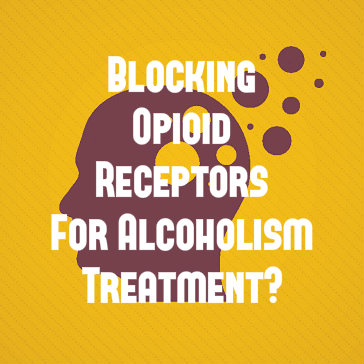 Alcoholism is partially defined by a physical dependence, a switch in long-term brain function characterized by a need to regularly consume alcohol in order to feel “normal.” In addition, people with the condition experience symptoms stemming largely from dependence, including recurring urges to keep drinking, an impaired or absent ability to limit drinking participation, increasing tolerance to the impact of any given amount of alcohol intake and the onset of a withdrawal syndrome if the brain’s requirements for alcohol go unmet.
Alcoholism is partially defined by a physical dependence, a switch in long-term brain function characterized by a need to regularly consume alcohol in order to feel “normal.” In addition, people with the condition experience symptoms stemming largely from dependence, including recurring urges to keep drinking, an impaired or absent ability to limit drinking participation, increasing tolerance to the impact of any given amount of alcohol intake and the onset of a withdrawal syndrome if the brain’s requirements for alcohol go unmet.
Alcohol Use Disorder
In any person, the symptoms of physically dependent alcoholism can overlap with the symptoms of non-dependent alcohol abuse. For this reason, current standards in the U.S. ask doctors to diagnose both alcoholism and alcohol abuse as components of a condition called alcohol use disorder.
Alcohol and Opioid Receptors
Opioid receptors get their name because they act as the pathways that allow opioid drugs and medications in the bloodstream to gain access to the brain and spinal cord (central nervous system). There are several types of these receptors on nerve cell surfaces in the brain. For reasons not fully understood by experts in the field, opioid receptors also play a role in giving alcohol access to the brain.
Pharmaceutical researchers have begun to exploit this fact by developing alcoholism medications designed to produce their treatment benefits by occupying the brain’s opioid receptors and thereby blocking alcohol from triggering some of its characteristic effects. One specific medication currently approved in the U.S. for use in alcoholism treatment, called naltrexone (ReVia, Vivitrol), blocks a particular type of opioid receptor and reduces alcohol cravings by diminishing the amount of pleasure derived from alcohol intake.
New Alcoholism Treatments?
In the study published in Biological Psychiatry, researchers from Washington State University and Denmark’s Neuroscience Drug Discovery used laboratory experiments on rats to investigate the role of one specific type of opioid receptor, called the K opioid receptor, in promoting the onset and continuation of alcoholism.
They chose to explore this topic, in part, in response to accumulating evidence that the K opioid receptor helps determine how people react to excessive alcohol intake. In particular, when a person drinks too much alcohol, activation of this receptor may lead to unpleasant emotional states and loss of the ability to feel pleasure. Counterintuitively, this situation may in turn trigger additional drinking as part of a conscious or unconscious attempt to offset the negative feelings associated with alcohol consumption.
During the study, the researchers supplied large amounts of alcohol to a group of rats for an extended period of time, and then allowed those rats to go through alcohol withdrawal. After examining the rats’ brains, they concluded that long-term, excessive alcohol consumption seriously disrupts function in a part of the brain responsible for helping to maintain critical functions, such as the ability to process emotions and make decisions.
While the rats were going through withdrawal, the researchers gave them a number of drugs designed to manipulate their brains’ K opioid receptors. After analyzing the impact of these drugs, they concluded that problems with the K opioid receptors play a significant role in producing the heavy alcohol consumption that people with alcoholism commonly rely on to cancel out alcohol withdrawal symptoms.
The study’s authors believe their findings may be critically important for the development of future medical treatments for alcoholism that produce their benefits by blocking access to the brain’s K opioid receptors. Specifically, they believe that such treatments could help achieve such goals as diminishing the emotional impact of alcohol withdrawal, helping people in recovery establish a stable state of abstinence and helping people in recovery otherwise meet the objectives of their treatment programs.
Learn About Topiramate Treatment For Alcoholism
07 Jul 2014
Are Binge Drinkers Addicted To Alcohol?
Binge drinking is a term used to describe heavy drinking. According to the National Institute on Alcohol Abuse and Alcoholism (NIAAA), binge drinking means having enough drinks in a two hour period to achieve a blood alcohol concentration level of 0.08, a level at which a person is considered to be intoxicated. Binge drinking is increasingly common, but does it make a person an alcoholic or addicted to alcohol? The answer is not so simple.
The Risks Of Binge Drinking
For women, binge drinking typically means having four or more drinks in a two-hour period. For men, it means having five or more drinks. Consuming this much alcohol in one sitting, or more, is detrimental to your health. And if you drink this way, you are not alone. One in every six adults in the U.S. binges four times a month. Each binge includes eight drinks on average. This is a lot of alcohol.
Binge drinking can lead to a number of health problems, not least of which is dependence on alcohol, or alcoholism. It can also cause:
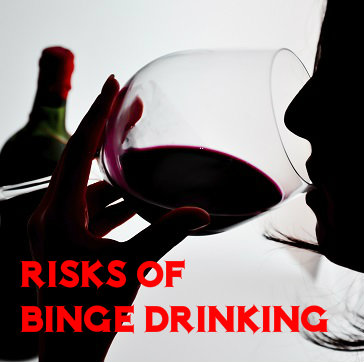 liver disease
liver disease- high blood pressure
- heart attack
- stroke
- neurological damage
- complications if you have diabetes
Binge drinking also leads to:
- accidents and injuries
- alcohol poisoning
- fetal alcohol syndrome
- unintended pregnancies
- problems with relationships
- strain on career and finances
What Is Alcoholism?
So does binge drinking make you an alcoholic? Not necessarily. Addictive disorders are most often diagnosed based on the Diagnostic and Statistical Manual of Mental Disorders. The fifth version of this manual recently came out with new criteria for alcohol addiction. The fourth edition listed alcohol abuse and alcohol dependence (alcoholism) as two separate disorders. The fifth edition merged the two into one disorder: alcohol use disorder. A person can be diagnosed as having a mild, moderate or severe case of alcohol use disorder.
According to the fifth edition, to have an alcohol use disorder you must have two of the eleven symptoms listed in the manual. Having two or three symptoms represents a mild case. Binge drinking is not listed as a symptom, but several of the symptoms could result from binge drinking. For instance, one symptom is drinking more than you intended to on a particular occasion. Many binge drinkers could claim doing this. Another symptom is trying to drink less, but failing. Again, this can happen with binge drinking.
There are several other symptoms that could go hand-in-hand with binge drinking. This means that if you binge drink and end up having two of these symptoms, you could be diagnosed as having mild alcohol use disorder. If the risks of binge drinking are not enough to make you want to slow down, maybe this fact is.
Stopping Binge Drinking
Moderate drinking is not harmful to your health, unless you have specific conditions that are exacerbated by alcohol. If you binge drink regularly, consider cutting back to moderate drinking levels. If you don’t, you put yourself at risk for a number of health problems. Not least of these is alcohol use disorder. If you could qualify for a diagnosis of mild now, you are on the path to having moderate or severe alcohol use disorder later.
Being a moderate drinker means having no more than three drinks per day and seven per week if you are a woman. If you are a man, have no more than four drinks per day and 14 in a week. Cutting back is important for your health, but if you find you can’t, you may need to get help. Rely on friends and family to support you in drinking less, or find a support group to join. You don’t need to be a full-blown alcoholic to ask for help. Doing so now could save you disastrous consequences in the future.
If You Or Someone You Love Needs Help Quitting Drinking – Call Us Now – We Will Get You On The Path To Happy And Healthy Sobriety!
Depression can be a very serious mental health condition. People struggle with depression to varying degrees. For some it is a lifelong battle, while for others it comes on as the result of life situations but is temporary. In any type of depression, self-medication is common but ill advised. Self-medication is the use of drugs or alcohol to mitigate symptoms. It is a dangerous and destructive practice, but not everyone who does it realizes the harm they are causing. If you or someone you love struggles with depression, look out for and avoid self-medicating.
Depression And Substance Abuse
Self-medicating is particularly common for depression. It mostly occurs in people who have not been diagnosed and are not getting professional treatment for depression. If you feel depressed, it is natural to turn to something that will either make you feel better, or that will at least numb that bad feeling. Most people reach for alcohol, but prescription drugs and illegal drugs are used as well for the self-medication of depression. The rates of substance abuse among people with either depression or anxiety are as high as 20 percent.
The Dangers Of Self-Medicating
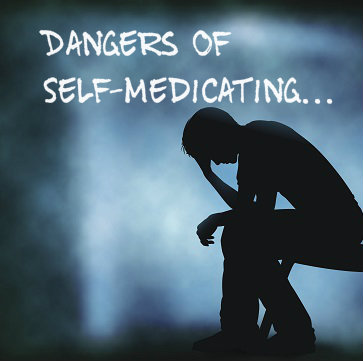 Self-medicating feelings of depression often work in the short term. It’s why so many people resort to it as a strategy for feeling better. Over a long period of time, however, doing so only causes more problems. Not least of these problems is the possibility of addiction. A dual diagnosis of depression and addiction is not uncommon. Relying on alcohol or drugs to make you feel better is a habit that leads to dependence. Your body will get used to the substance and you will find it difficult to quit.
Self-medicating feelings of depression often work in the short term. It’s why so many people resort to it as a strategy for feeling better. Over a long period of time, however, doing so only causes more problems. Not least of these problems is the possibility of addiction. A dual diagnosis of depression and addiction is not uncommon. Relying on alcohol or drugs to make you feel better is a habit that leads to dependence. Your body will get used to the substance and you will find it difficult to quit.
Another problem with self-medicating is that it never allows you to confront and deal with your depression. Drinking or using drugs is like a quick fix, but one that doesn’t last. It is not a permanent solution to your problems. Only treatment by health care professionals using therapy in combination with appropriate medication will provide you with lasting relief. In fact, research into teenage depression has found that self-medication can actually make a mental illness more serious.
How Can I Tell If Someone Is Self-Medicating?
If you’re worried that someone you care about may be struggling with depression and is self-medicating, act immediately. Be there for your loved one and offer your help. People often don’t realize that they are depressed. It is usually easier for others to see the signs.
First look for signs of depression:
- Feelings of hopelessness or loneliness
- Apathy
- Changes in sleeping habits
- Weight loss or gain
- Irritability or irrational anger
- Difficulty concentrating
- Reckless behaviors
- Unexplained aches and pains
If, in addition to seeing these signs in someone, you also see them using drugs or alcohol frequently or to excess, he or she is probably self-medicating for depression. Your loved one may try to hide drug use or drinking, which is another clear sign. Confront this person as soon as you can, but do so in a loving and compassionate manner and offer your help.
Depression is a complex mental illness. It afflicts many people, who often turn to substances for relief. Instead of drugging the problem, get help for yourself or your loved one. The care and treatment given by professionals is the right solution to coping with and living with depression. Self-medicating may feel right initially, but the good feeling won’t last. It will only make the condition and symptoms worse.
Learn More About Dual Diagnosis
If You Or Someone You Love Is Struggling With Mental Illness and/or Addiction – Call Us Now To Speak To A Recovery Advisor! We Are Here To Help!
The struggle of a spouse coping with an addicted partner is one that is often discussed, written about and addressed as an important element of addiction treatment. What we don’t hear about as often are the cases in which both partners in a marriage are battling addiction. For a spouse who has never had an addiction, watching her loved one struggle and trying to lend support and love is an extreme challenge. If both people are addicted, it magnifies the problem. How do you support each other when you are each battling your own addiction demons and trying to stay clean?
Should I Get Addiction Treatment With My Spouse?
 The most important decision you both need to make is to each get help. How you do that and what resources you use to get help are less important than taking that first step. Once you have both agreed that you need the care of addiction professionals, you are ready to face the rest of your journey. The next question to be answered is whether you go it alone or try to go through rehab together.
The most important decision you both need to make is to each get help. How you do that and what resources you use to get help are less important than taking that first step. Once you have both agreed that you need the care of addiction professionals, you are ready to face the rest of your journey. The next question to be answered is whether you go it alone or try to go through rehab together.
The good news is that you have options. Addiction treatment has advanced tremendously over the last couple of decades. There are many more ways in which you can get care, and if you want to, you can do it together. One benefit of working together is that you both stand a better chance of being on the same page if you receive the same program of treatment from the same professionals. Different treatment programs adhere to different philosophies and when you both work with the same one, you will understand each other better. Working together will also give you the opportunity to address your relationship issues as well as your addictions.
One philosophy of addiction treatment says that you should be solely focused on yourself. If you work together on your treatment, you may fall into bad relationship habits and fail to devote yourself entirely to your own healing process. Discuss your options together and consider asking the opinions of addiction professionals as well. You can always change your plan if working together or apart does not go as you hoped it would.
What If My Spouse Won’t Commit To Treatment?
As long as you both are committed to getting treatment for your individual problems, your relationship stands a chance of surviving your addictions. What happens if one of you refuses treatment or won’t follow through with it? This situation can be incredibly difficult for both partners. If you are moving forward and your spouse is falling behind, you have a major problem. Staying together means that your spouse could drag you back into addiction. If you separate, it could mean that your spouse falls into an even deeper hole.
The ultimate decision as to how to handle a spouse who won’t join you on your journey to sobriety is personal. Only you can decide what is right for you and your relationship, but know that you likely won’t last long if one of you is abusing drugs or alcohol while the other is in recovery. It’s a volatile situation that is bound to blow up. If your spouse refuses to get help, do everything in your power to encourage him or her do so so. If you can’t, it may be time to move on. It will feel like a terrible abandonment, but you can only change yourself. Your transformation into a healthy and sober person may even be the push needed to get your spouse to follow suit.
You And Your Spouse Are Worth It – Give Us A Call Now To Begin The Healing!
Mental illness and substance abuse often occur together. One of the most common types of mental illness, anxiety disorder, is sometimes a cause of substance abuse and addiction, and in some cases follows a substance abuse problem. Nearly 20 percent of all people who struggle with a mood disorder, which includes anxiety disorder, also have a problem with alcohol or drug abuse. Coping with both issues can be a challenge, but experts are always developing new ways to treat co-occurring disorders. There is hope for anyone struggling with both anxiety and substance abuse.
Which Comes First: Addiction Or Anxiety?
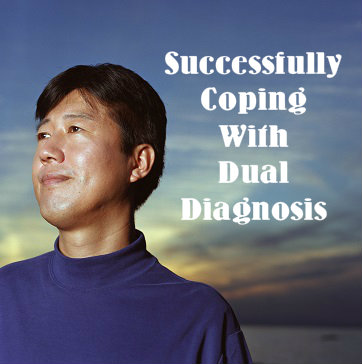 The statistics work both ways. Twenty percent of people with anxiety disorder also struggle with substance abuse, and 20 percent of people who abuse substances have symptoms of an anxiety disorder. So, which develops first? It is possible that the symptoms of anxiety disorders can lead someone to drink or abuse drugs. If you have anxiety and you don’t get treatment for it, using substances can make you feel as if you are alleviating your symptoms. This is called self-medicating. Social anxiety disorder, in particular, commonly leads to substance abuse because using drugs or alcohol can make you feel more comfortable when around people.
The statistics work both ways. Twenty percent of people with anxiety disorder also struggle with substance abuse, and 20 percent of people who abuse substances have symptoms of an anxiety disorder. So, which develops first? It is possible that the symptoms of anxiety disorders can lead someone to drink or abuse drugs. If you have anxiety and you don’t get treatment for it, using substances can make you feel as if you are alleviating your symptoms. This is called self-medicating. Social anxiety disorder, in particular, commonly leads to substance abuse because using drugs or alcohol can make you feel more comfortable when around people.
On the other hand, if you have not struggled with anxiety until after you started abusing alcohol or drugs, it can be the substance abuse that initiated your feelings of anxiousness. Drugs and alcohol have a powerful impact on the brain and how it works. When you abuse these substances you risk making changes to the brain’s chemistry and that can lead to any number of mental illnesses, including anxiety disorders.
Treating Addiction And Anxiety Disorder
It is important to recognize both problems in order to heal from an addiction and an anxiety disorder. By ignoring one and only treating the other, both issues are likely to reappear. Often it is the addiction that becomes obvious first. If you realize you have a problem with drugs or alcohol, start looking for treatment programs, a drug counselor or a support group. A good treatment program for addiction should also screen you for mental illness. If you suspect you have other issues beyond your substance abuse, see a specialist for an accurate diagnosis.
Once you know what you have, you can begin getting treatment for addiction and anxiety. Many experts would agree that it is most important to treat and get addiction under control first and then include treatment for the anxiety disorder. A growing number of treatment facilities treat both issues simultaneously. Keep in mind that your treatment professionals should create a personalized treatment plan that will address both addiction and anxiety.
When you have a handle on your addiction, seek targeted treatment for your anxiety disorder. Therapy may be your best option. Although many people take prescription medications for anxiety, and find relief using them, drugs may not be a good choice for you. Some of these medications are habit-forming and if addiction is a problem for you, it may be best to avoid them. That choice is one for you and your therapist to make together.
As you work toward healing from both addiction and mental illness, be sure to rely on your loved ones for support. Having a strong support network is important to help maintain sobriety and control anxiety. Let them guide you into new activities and hobbies that will help you reduce anxiety without resorting to drugs and alcohol. With professional care and the help of loved ones, you can overcome your co-occurring problems.
Call Us Now – We Are Here To Help You With Mental Health Issues And Addiction!
01 Jul 2014
How Have Marijuana Laws Changed?
Attitudes toward cannabis, also known as marijuana, have been undergoing a major shift in recent years. Long known to be one of the less hazardous of illicit drugs, smoking pot still carries risks. There are health problems, the possibility of harming children and teens, not to mention the dangers of driving while high. In spite of the negative aspects, some believe in the pros of legalizing marijuana for recreational use, including voters in Colorado and Washington state.
Which Marijuana Policies Have Changed?
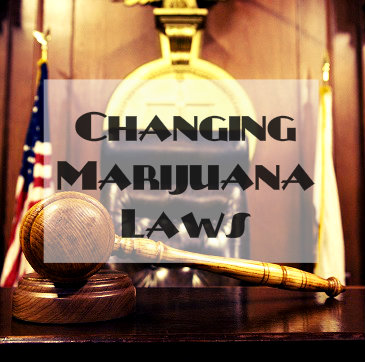 Society’s attitudes toward marijuana have been changing for decades. Some municipalities decriminalized the possession of small amounts of marijuana long ago. In these cities, users may get ticketed, but fines and other repercussions are minimal. In 1996, California became the first state to pass and enact legislation for the legalization of medical cannabis. This allowed doctors to prescribe marijuana to patients who might see benefits from using it.
Society’s attitudes toward marijuana have been changing for decades. Some municipalities decriminalized the possession of small amounts of marijuana long ago. In these cities, users may get ticketed, but fines and other repercussions are minimal. In 1996, California became the first state to pass and enact legislation for the legalization of medical cannabis. This allowed doctors to prescribe marijuana to patients who might see benefits from using it.
After debating the pros and cons of legalizing cannabis, 20 states, as well as the District of Columbia, now allow the legal use of medical marijuana. More recently, residents in the states of Washington and Colorado voted to expand the legality of cannabis and recreational use is now allowed. Alaska may be the next state to pass such legislation. Enough signatures have been collected there to get the issue on the ballot this summer. While states continue to make policy changes regarding marijuana, it is important to remember that this is still an illegal drug, for any type of use, according to the federal government.
What Are The Cons Of Legalizing Marijuana?
Perhaps the biggest reason that states have agreed with their voters and have decided to start legalizing marijuana is for the revenue. As state and local budgets suffer, taxes collected from selling marijuana could make a big difference. There are downsides too, which states and local governments need to consider. The most obvious negative impact could be public health. Marijuana is a mind-altering substance that is most often smoked and could contribute to cancer and lung disorders.
Cannabis is a drug with psychoactive properties. It renders users relaxed and happy, but can also cause paranoia, delusions, and, as a result, some risky behaviors. It impairs judgment and can cause the user to make bad choices and can lead to self-harm and accidents. Just how damaging users under the influence may be remains to be seen. Driving while high on legal marijuana could be a huge issue for public safety.
Among all the negatives of legalizing marijuana, some critics are most concerned about how the policy changes could affect young people. Alcohol has long been legal, but controlled and age-restricted, and yet the harm that it has caused to teens has been dramatic. Underage drinking kills many people every year. Critics of legalized cannabis worry that marijuana will get into the hands of kids and teens more often now and that the impact could be severe. As policies and attitudes regarding this drug shift across the country, it is our responsibility as citizens to be informed.
30 Jun 2014
Does Addiction Need To Lead To Divorce?
Addiction can wreak complete havoc on a marriage. The addict partner may neglect or even abuse his or her spouse, drain the family’s finances, and be completely unavailable to any family member. The resulting feelings in the non-addicted spouse often include depression, resentment, anger, and even outright hatred. It seems inevitable that these marriages are headed for divorce, but when both partners make a commitment to work through the issues, that outcome can be avoided.
How Can The Addict Turn Things Around?
 If you are the addict and you want to save your life and your marriage, the first and most important thing you can do is to get treatment for your addiction. Commit to your treatment plan and work hard to get sober and stay sober. This step is a powerful statement to your spouse about your intentions. Actions always speak louder than words; if you have promised your spouse again and again that you would get help but didn’t follow through, only action will save you now.
If you are the addict and you want to save your life and your marriage, the first and most important thing you can do is to get treatment for your addiction. Commit to your treatment plan and work hard to get sober and stay sober. This step is a powerful statement to your spouse about your intentions. Actions always speak louder than words; if you have promised your spouse again and again that you would get help but didn’t follow through, only action will save you now.
In spite of making the move to get help and make things better, some marriages fall apart once the addicted spouse enters recovery. Seeking addiction treatment means more time that you need to focus on yourself and your recovery to the neglect of others. As you go into rehab, talk to your spouse and explain that you will need to be self-involved for a little bit longer, and that it is necessary in order for you to get well again. Ask for patience and time. Involving your spouse in the process to some extent can be helpful for your marriage. Consider including some therapy sessions with the both of you so you can start working on rebuilding your relationship as you learn to be sober.
How Can A Spouse Forgive?
If you are the non-addict, forgiveness and repairing your relationship with your spouse may seem impossible. You have been hurt and ignored, time and time again, but as long as your spouse is seeking treatment, there is hope. Start on the path to forgiveness by learning more about addiction. The more you understand the disease, the more likely you will be to develop some compassion for your spouse.
It may also be helpful for you to seek some counseling. See a therapist who specializes in helping people who have been hurt by addicts. Also consider joining a support group for the loved ones of addicts. You can learn a lot from the experiences of others who have been in your position. The support and camaraderie can also be a powerful tool for healing. Once you have taken the time to work on yourself, be prepared to forgive and to get involved in your spouse’s treatment. Your marriage cannot move forward if you still harbor grudges and resentments.
What if Divorce Is The Best Option?
Despite your best efforts your marriage may be headed for failure. How do you know if divorce is your best option? If you are the recovering addict, no matter how much you try, your spouse may not be able to forgive you or get past the damage you have caused. If you are the injured party, you may try everything to get your spouse to stay clean, but you see failure again and again. If you can’t live with your spouse anymore, you may need to follow through with a divorce. Even if you do split up, keeping up with therapy for both spouses is crucial. You have both been damaged and you both need healing, no matter what happens to your marriage.
If You Or Your Spouse Is Struggling With An Addiction – Call Us Now – We Are Here To Help!
People who experience serious problems with the non-addicted abuse of stimulant drugs (e.g., amphetamine, cocaine and methamphetamine) and people addicted to stimulant drugs typically qualify for a diagnosis called stimulant use disorder. After entering treatment for their problems, some individuals with this disorder successfully remain abstinent from stimulant use, while others relapse back into active stimulant intake.
In a study published in June 2014 in the journal Drug and Alcohol Dependence, researchers from a U.S. university and two private institutions compared the brain functions of people with stimulant use disorder who remain abstinent to the brain functions of people with the disorder who relapse.
Stimulant Use Disorder
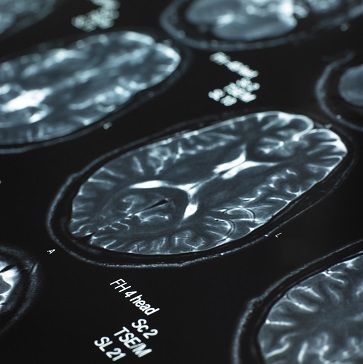 Stimulants are powerful substances that substantially speed up activity in the nerve cells that power the central nervous system (spinal cord and brain), and thereby trigger a speedup in key body functions such as the baseline heart rate and breathing rate. The brain changes associated with stimulant use include the onset of an intense sensation called euphoria, which emanates from a part of the brain commonly referred to as the pleasure center.
Stimulants are powerful substances that substantially speed up activity in the nerve cells that power the central nervous system (spinal cord and brain), and thereby trigger a speedup in key body functions such as the baseline heart rate and breathing rate. The brain changes associated with stimulant use include the onset of an intense sensation called euphoria, which emanates from a part of the brain commonly referred to as the pleasure center.
Some stimulant users become involved in a pattern of abuse when they try to recreate euphoric feelings in their pleasure centers, while others establish a pattern of abuse based on a misguided desire to do such things as increase alertness or improve academic performance.
Over time, habitual stimulant abusers may become stimulant addicts when their brains undergo long-term changes that produce physical dependence, as well recurring drug cravings, loss of control over stimulant intake or a number of other potential symptoms.
The stimulant use disorder diagnosis applies to non-addicted abusers who fall into a dysfunctional pattern of stimulant-related behavior, as well as to people affected by physical stimulant dependence and addiction. The American Psychiatric Association officially established this diagnosis in 2013 as a specific form of a larger illness classification called substance use disorder. Stimulant use disorder replaces independent diagnoses for both stimulant abuse and stimulant addiction. This replacement occurred because current evidence strongly supports a high degree of overlap for symptoms of abuse and addiction in affected stimulant users.
Stimulant Relapse
People in treatment for stimulant abuse/addiction need time to detoxify from active drug use and recover from the long-term changes in their normal brain function. A chief obstacle to this process is the continuing presence of strong urges to consume more of a given stimulant. Typically, these urges are intensified by cues in the everyday environment that recovering stimulant users have previously learned to associate with drug intake. Even in people who ultimately recover and establish a long-term abstinent lifestyle, the persistence of drug-using urges can trigger a relapse either during or after treatment. Relapses are a fairly common occurrence, and addiction specialists typically take them into account when devising treatment strategies for their patients/clients.
Are There Brain Differences In Those Who Relapse On Stimulants?
Researchers from the University of Minnesota, the Hazelden Foundation and a private psychiatric practice used modern imaging technology to compare the brain functions of people who relapse back into stimulant use during or after treatment to the brain functions of people who avoid stimulant use during or after treatment. All told, 18 people diagnosed with substance use disorder took part in the study, as did a second group of 15 people not affected by any form of substance abuse. The researchers performed two sets of brain scans on all of these individuals, and followed up half a year later to see which stimulant users had relapsed back into drug use.
With the advantage of hindsight, the researchers concluded that, at the initial bran scan, the participants who eventually relapsed had far more profound changes in the function of parts of the brain responsible for the critical tasks of maintaining emotional control and regulating levels of pleasure and reward. The participants who relapsed also gradually developed a reduced level of activity in these brain areas in the early stages of their recovery.
The study’s authors believe that the decline in brain function found in the participants who ultimately relapsed back into drug use may serve generally as a physical sign of heightened risks for relapse in recovering stimulant users.
Call Us Now If You Or A Loved One Is Struggling With Addiction Or Has Relapsed. Help Is Just A Phone Call Away!


